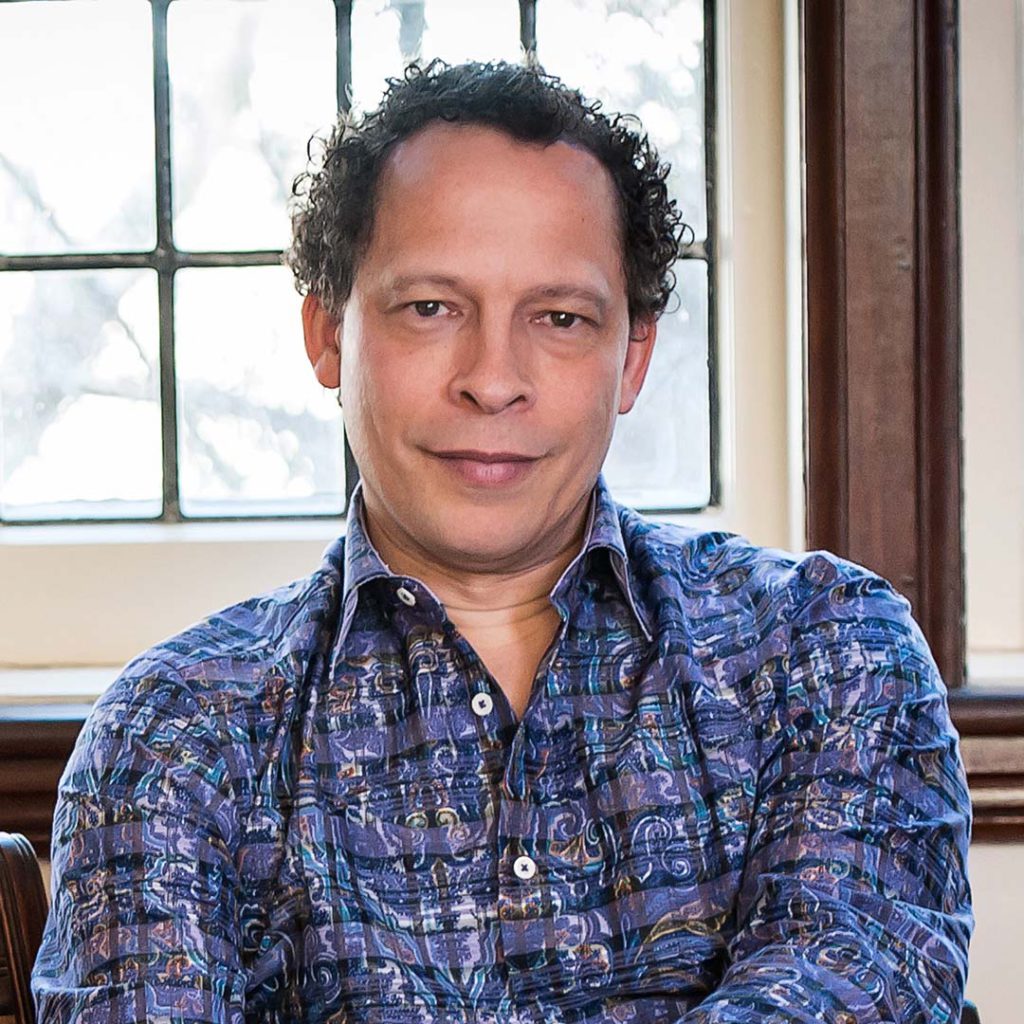 On September 28 students, faculty and members of the public gathered online to hear authors Lawrence Hill, DCL’19, and Evelyn C. White speak as part of the third annual Afterwords Literary Festival, presented by the University of King’s College’s MFA in Creative Nonfiction program.
On September 28 students, faculty and members of the public gathered online to hear authors Lawrence Hill, DCL’19, and Evelyn C. White speak as part of the third annual Afterwords Literary Festival, presented by the University of King’s College’s MFA in Creative Nonfiction program.
Hill, a Canadian novelist and essayist, is the author of ten works of fiction and nonfiction. White is an American author living in Halifax, best known for her biography of Alice Walker. Their conversation focused on Hill’s career and his views on literary censorship.
After a brief introduction, Hill delved into the inspiration behind his 2007 novel, The Book of Negroes.
As a child Hill’s interracial parents, who were activists in Ontario, instilled in him a love of Black literature and history. When he was older, Hill became interested in Black loyalists living in Nova Scotia during the American Revolutionary War. Through his research he came across a historical document called “The Book of Negroes,” the basis of his story and the title of his novel.
White and Hill discussed the negative reaction to the book’s title, which Hill said he didn’t anticipate. While he was aware that the word in the title was offensive, especially in the United States, Hill explained that he was using the name of a historical document, resurrecting it and claiming ownership. He pointed out that language is ever-evolving, and the language behind race is fundamentally flawed because it is based on a fallacy—the concept of race itself.
White asked Hill what his reaction was upon receiving a (now infamous) email sent in response to the title of his book, that opened with the line, “Dear sir, I intend to burn your book.” Hill replied that he was shocked and troubled; he said it hurt even more after learning that the man who’d sent it was a member of the Black community in the Netherlands. He offered to meet the man and discuss his reasoning for the title. However, the man seemed intent on burning the book, going so far as to provide a date for when it would happen.
Hill shared his thoughts on book burnings and literary censorship, saying he didn’t believe any book should be burned. Even the most controversial books should belong somewhere, for historic and educational purposes. These beliefs resulted in his book-length essay, Dear Sir, I Intend to Burn Your Book.
White finished by asking Hill if writing Dear Sir was cathartic, and he replied “deeply.” Hill explained that as an author, he processes his emotions through writing, and being raised by activists, he felt he had a moral obligation to stand his ground and fight for his beliefs.
They then discussed one of Hill’s short stories, Meet You at the Door, set in 1970’s Saskatchewan. Hill talked about the loneliness of being Black in a remote place where there is no Black community. He said he was “looking for beauty in unexpected places.”
The conversation ended with Hill discussing his personal essay written about accompanying his 90-year-old mother to Switzerland for medically-assisted death, and what it was like helping her through the process, since she wasn’t able to navigate the medical system herself. He said that while helping her make this decision was hard, he understood and respected her reasons, and “she brought [him] into this world, so he can see her out.”
The conversation was followed with a brief Q&A session, where audience members asked Hill about his work as a creative writer and journalist, his thoughts on cancel culture, his literary inspirations, and advice for how to write characters that don’t share the writer’s cultural background.
Students at the University of King’s College are invited to a special session on Monday, October 4, 2021 that will feature a Q&A with Lawrence Hill on the topic of literary censorship.

